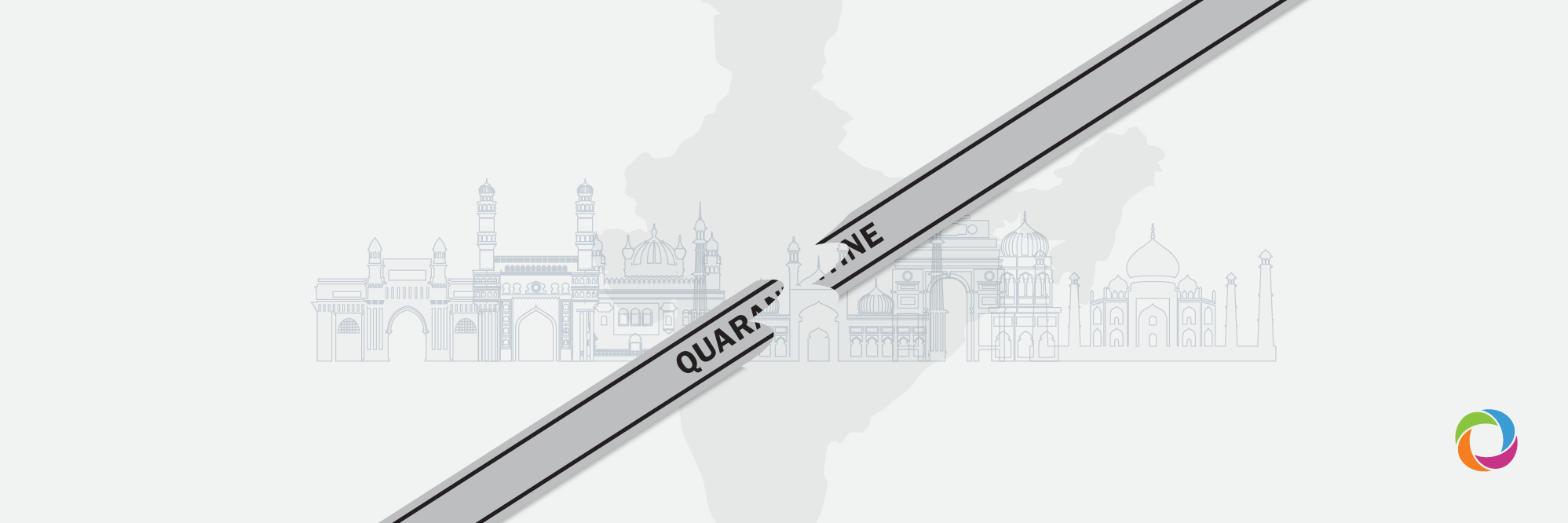One of the strictest national lockdown measures in the world has failed to protect people from the novel coronavirus and provide life-saving solutions. Since the containment was eased, India has experienced a spike in COVID-19 cases. As testing increases and the virus spreads more widely, India has been pushed into third place of the worst-affected states, reporting 1.4 million people having tested positive and nearly 33,000 deaths.
Lockdown abandoned to boost the economy
In attempt to revive the national economy, India hastened to ease the restrictive initiatives that had been adopted during the crisis. The authorities gradually reduced the severity of the lockdown measures despite there being no decline in cases but, with the economy bearing the brunt, such measures were unaffordable. While the Indian government justified the strict lockdown as an impetus to fight the virus and gain time to adapt the country’s healthcare infrastructure, public health specialists stressed the importance of early detection and aggressive testing.
“As a public health measure, I don’t think the lockdown had much impact, especially due to scarce testing. It just delayed the spread of the virus,” reported Dr. Kapil Yadav, assistant professor of community medicine at New Delhi’s premier All India Institute of Medical Sciences.
Containment measures in India, unaffordable
The population of India was put into lockdown at the end of the March when the authorities reported 519 cases and 10 deaths. Shortly after this, social distancing resulted in heavy job losses in the country with nearly half of the population losing their income. The US$22.5 billion aid package provided by the government failed to reach millions of the most vulnerable people. Furthermore, the situation is becoming more of a concern as India has been identified as an emerging hunger hotspot where levels of food insecurity are rising rapidly leaving millions of people facing starvation. The lifting of the containment began after two months when India had more than 180,000 cases, a number that was still rising.
Defying global expectations
Strategies to slow the spread of the coronavirus that were initially praised out to be too drastic and become a burden on the most vulnerable. “The lockdown has protected the wealthy in particular because they could afford to stay at home. The poor were not able to do the same, so they have been dealt the hardest blow. It is an utter injustice,” said Ramanan Laxminarayan, epidemiologist at the Center for Disease, Economics and Policy in Washington DC.
Despite the worrying forecasts, the Indian authorities have claimed they have proved that their fight against the coronavirus has defied global expectations.
“With the way that Indians came together to fight the coronavirus in the last few months, we have proved the world wrong,” Indian Prime Minister Narendra Modi commented, alluding to India’s capacity to manage the crisis better than other countries.
Dealing with drug shortages
After hitting the densely populated largest cities in India badly, the pandemic then became a reality for people living in rural areas where living conditions and healthcare facilities are less able to cope with the increasing needs. Based on the current daily trend of confirmed COVID-19 cases, experts forecast a gloomy scenario and a rapidly growing number of those infected. Some states have already reported drug shortages for the treatment of the virus.
Experiencing an increasing number of cases, a shortage in drugs and huge demand for medicines, India has been forced to produce a version of Remdesivir, an anti-viral drug that has been used for years to treat Ebola. Some of the pharmaceutical companies producing Remdesivir have said that, in a few weeks, the demand-supply gap is expected to normalize. Given the limited production thus far, the high demand has led to the development of a thriving illegal trade in the drug. Meanwhile, the human trials of Covaxin, the COVID-19 vaccine, are being held in 12 institutes in India were seven companies are engaged in developing the vaccine.
DevelopmentAid tracks the most important news and events. Subscribe to DevelopmentAid and gain access to up-to-date information.


